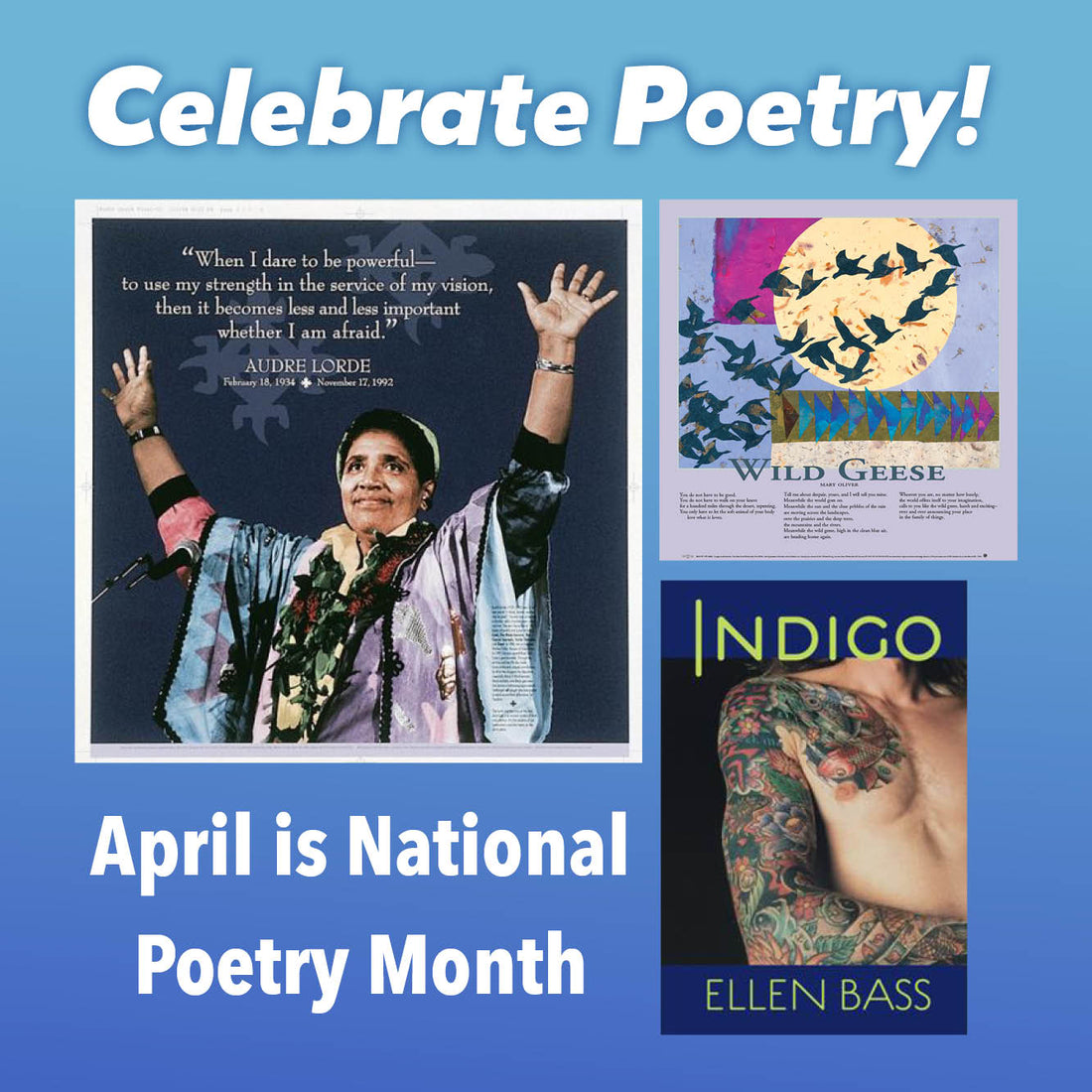
Celebrate Poetry Month – Verses of Resistance
Share
Jonas Mekas, the Lithuanian poet, filmmaker, and activist, stated in his Village Voice column, Movie Journal, “In the very end, civilizations perish because they listen to their politicians and not to their poets.”
Poets speak for the people. We are the bards, the storytellers, and the witnesses of civilization in all its glory and foibles. The first recorded poet was Enheduanna, a Mesopotamian priestess circa 2285-2250 BCE. Her poem was discovered in a cuniform tablet; it was a protest. Chilean poets Pablo Neruda and Nicanor Parra are just two voices whose government tried to silence them to maintain power. Sharon Olds, Amiri Baraka, Allen Ginsberg, Walt Whitman, Langston Hughes, Gwendolyn Brooks, and countless others have challenged the status quo and the power brokers with righteous indignation in their verse.
Audre Lorde is frequently remembered for her 1985 essay, “Poetry Is Not a Luxury,” in which she stated, “For women, then, poetry is not a luxury. It is a vital necessity of our existence. It forms the quality of the light within which we predicate our hopes and dreams toward survival and change, first made into language, then into idea, then into more tangible action. Poetry is the way we help give name to the nameless so it can be thought. The farthest external horizons of our hopes and fears are cobbled by our poems, carved from the rock experiences of our daily lives.”
Although Lorde intended to speak to women of empowerment, her premise of poetry as an element of life and culture is particularly poignant now. In times of strife and shock, poets unite to soothe and guide, to provide hope and fuel fires of dissent.
April is National Poetry Month. To read a poem is a radical act. To write one is as well. In these pressing times, poetry is essential and it is all around us.
Georgia Popoff
Onondaga County Poet Laureate and poetry editor of the Women Artists Datebook
